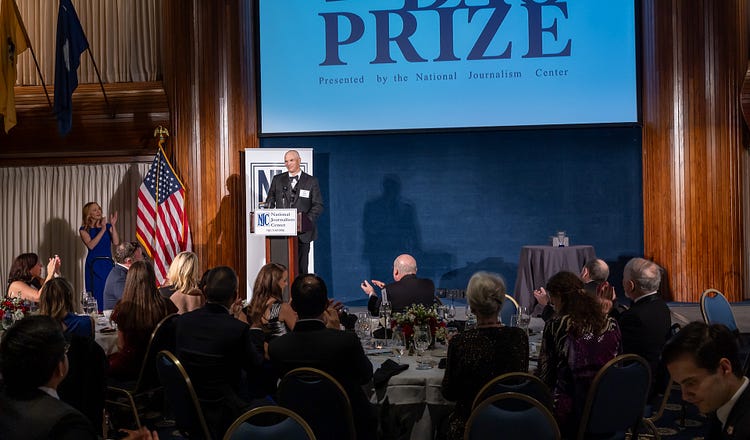The Free Press Wins a Prize for Excellence in Investigative Journalism

(Image courtesy of Young America’s Foundation / David Keith)
We are proud to be awarded the inaugural Dao Prize for our work on the Twitter Files, along with Matt Taibbi and Michael Shellenberger.
290
We won a journalism prize last week, and I want to crow a bit about it. But first I want to take you a long way back. . . to 2020.
Before Elon Musk bought Twitter, America’s information network—our newspapers and social media companies—were managed and censored along pretty obvious and blunt ideological lines. The rules for acceptable conversation on te…
Continue Reading The Free Press
To support our journalism, and unlock all of our investigative stories and provocative commentary about the world as it actually is, subscribe below.
$8.33/month
Billed as $100 yearly
$10/month
Billed as $10 monthly
Already have an account?
Sign In

